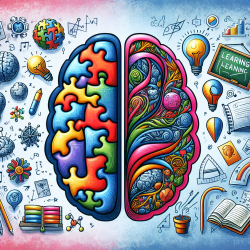As practitioners dedicated to improving the lives of children, we are always on the lookout for evidence-based strategies that can make a meaningful difference. Recent research titled Testing for an Effect of a Mindfulness Induction on Child Executive Functions offers intriguing insights into how mindfulness practices can potentially enhance executive functions (EF) in children. This blog aims to distill the key findings from this study and provide actionable recommendations for practitioners.
The Importance of Executive Functions
Executive functions are critical for child development, influencing social competence, emotional regulation, and academic success. These cognitive processes include:
- Inhibitory Control
- Cognitive Flexibility
- Working Memory
Understanding and improving EF can significantly enhance a child's ability to manage emotions, focus on tasks, and achieve academic goals.
Mindfulness and Executive Functions
Mindfulness, characterized by the self-regulation of attention and an open, non-judgmental orientation to experiences, has shown promise in improving EF in adults. However, its immediate effects on children have been less explored. The study in question tested whether a brief mindfulness induction could exert an immediate effect on EF in children aged 4-7 years.
Study Overview
The study involved 156 children who were randomly assigned to either a mindfulness induction group or a comparison group (dot-to-dot activity). The mindfulness induction included a brief, age-appropriate practice focusing on visual, auditory, and sensory experiences. The children's EF was then assessed using four tasks:
- Tower of Hanoi
- Head, Toes, Knees, and Shoulders (HTKS)
- Delay of Gratification
- Backward Digit Span
Key Findings
While the mindfulness group scored higher on a composite measure of EF, the difference was not statistically significant when compared to the dot-to-dot activity group. This suggests that the immediate effects of a brief mindfulness induction on EF may be limited. However, the study highlights several important considerations:
- Baseline behavioral difficulties significantly influenced EF outcomes.
- The choice of comparison activity (dot-to-dot) may have masked the effects of mindfulness.
- Methodological differences and developmental stages could impact the effectiveness of mindfulness inductions.
Practical Implications
Despite the non-significant findings, mindfulness remains a promising area for enhancing EF in children. Here are some recommendations for practitioners:
- Integrate Mindfulness Practices: Incorporate brief, regular mindfulness sessions into your therapy routines. Even if immediate effects are not apparent, consistent practice can yield long-term benefits.
- Tailor to Individual Needs: Consider the baseline behavioral and cognitive characteristics of each child when implementing mindfulness practices.
- Further Research: Encourage ongoing research to explore different methodologies, durations, and types of mindfulness practices to identify what works best for different age groups and conditions.
Conclusion
Mindfulness has the potential to enhance executive functions in children, but more research is needed to fully understand its immediate and long-term effects. As practitioners, integrating mindfulness into our therapeutic approaches and staying informed about emerging research can help us better support the children we serve.
To read the original research paper, please follow this link: Testing for an Effect of a Mindfulness Induction on Child Executive Functions.










